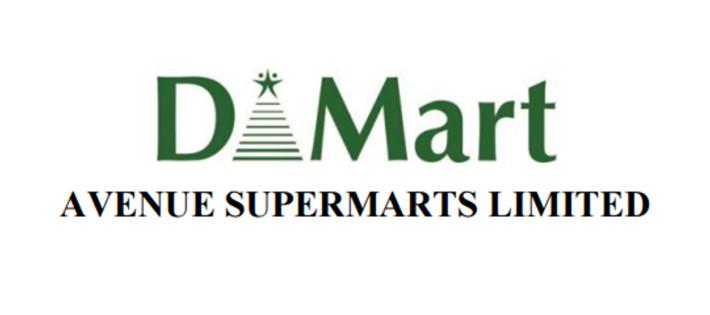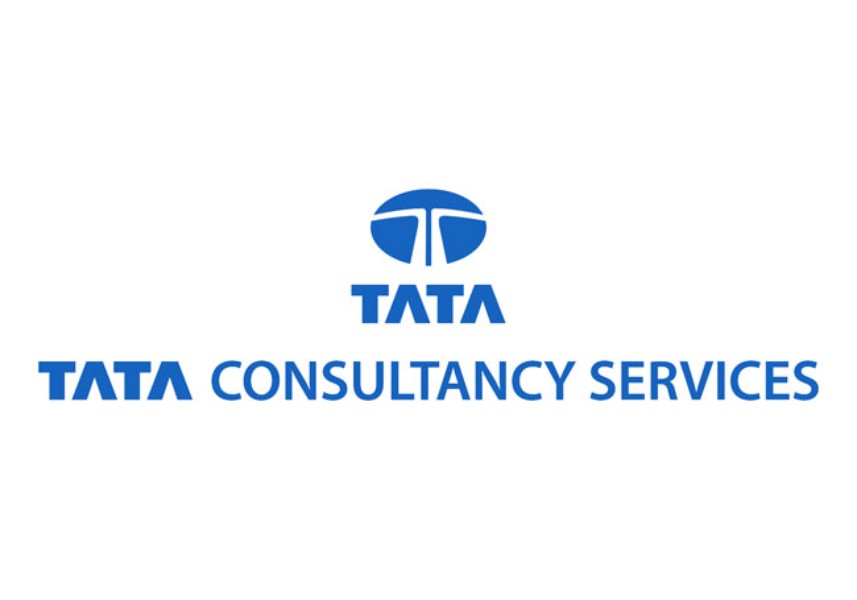

Sector: NBFC
Manappuram Finance (MGFL) is one of the leading gold loan NBFCs in India and is well diversified into other business segments like housing loan, vehicle loan and microfinance.
After facing the challenging years of FY13 and FY14, MGFL has moved to short term gold loan products that helped them to effectively manage the gold price volatility and to significantly reduce the default risks and the auction losses. The company has also launched online gold loans (OGL) back in 2015, which now constitute about 39% of the total gold loan portfolio. After temporary hiccups in the business caused by demonetisation and GST implementation, the gold loan business is back on the growth track and we expect gold loan AUM to grow at 10% CAGR over FY19-21E. The rising gold prices, accompanied by a decrease in interest rates in the latest RBI monetary policy, to act positively for the company.
The strategy that was envisioned to use the surplus capital and to leverage the strong brand equity acquired over the years has started bearing fruit with these new product segments constituting almost around one-third of the total asset under management of the company in Q4 FY19. Over the next few years, the company expect these non-gold businesses to contribute about 50% of the total AUM. With a wider branch network and strong penetration, we expect these new businesses to grow at 34% CAGR over FY19-21E, with microfinance at 28%CAGR, Housing finance at 29% CAGR and Vehicle finance at 47% CAGR growth from FY19-21E.
In Q4 FY19, the company has a capital adequacy ratio (CAR) of 23.9%, which is much above the regulatory requirement of 15%. MGFL’s standalone GNPA stands at 0.5% in Q4 FY19, which is one of the lowest in the NBFC space. Also, the GNPA levels of Microfinance, Housing Finance and Vehicle Finance stand at 0.5%, 3.9% and 1.9% respectively. On a consolidated basis, the GNPA stands at 0.6% and NNPA stands at 0.3% in Q4FY19. The company also have healthy return ratios, with ROE at 23% and ROA at 5.2% in the latest quarter.
At CMP, the stock is trading at P/BV of 2.0x and 1.7x respectively for FY20E BVPS of Rs64.9 and FY21E BVPS of Rs78. With demonetisation impact left behind, the company is targeting healthy growth in gold loan business going forward, supported by rising gold prices and decreasing interest rates. The new business segments are also expected to do well in the coming years. Also, the company is having healthy CAR, one of the lowest NPAs among NBFC space, and positive asset-liability mismatches. Hence, we value MGFL at 2.0x on FY21E Adj. BV/Share and arrive at a target price of Rs154 and recommend ‘Buy’ rating.
Analyst: Abijith T Cherian
Geojit Financial Services Ltd., INH200000345
For General Disclosures and Disclaimers-Manappuram Finance Ltd: Click here


Sector: Retail Stores
Avenue Supermarts Ltd (DMart) owns & operates India’s most profitable supermarket, DMart. It provides products like Food, Non-Food (FMCG), General Merchandise & Apparel through 184 stores (total 6.3mn sq. ft).
DMart continued to report strong revenue growth at ~27% YoY aided by consistent growth in new store additions. The company has added 8 new stores in Q1FY20 Vs12 stores QoQ. As per management, the large part of the addition was spill over from the previous quarter (store additions in Q4FY19 was below expectation). But, the healthy growth is likely to continue in FY20. The company is now considering leased stores also to accelerate growth. Any QIP placement of additional shares will also support accelerated store additions. Like-for Like growth in revenue has improved to 17.8% in FY19 from 14.2% in FY18 and higher contributions on account of acceleration in new store will support growth going forward. We expect revenue growth of ~31% CAGR over FY19-21E.
EBITDA margin improved by 100bps to 10.3% in the quarter which is at peak in the last six quarters. EBITDA margin improvement was on account of increase in Gross Margins (GM) and operational efficiency. GM improved to 16.1% from 15.6% YoY, other expenses as a % of sales improved to 4.2% from 4.7% YoY and staff cost as % of sales declined to 1.6% from 1.7% YoY. As per the management, Q1 margins cannot be considered as a reflection for the entire year as in Q1FY19 the EBITDA margins were at 9.3% but had normalised to 8.2% for the full FY19. We assume improvement in GM is very limited due to DMart’s ‘Every Day Discount’ model and assume it to be ~15% for the long-term. Expect EBITDA margin to normalise like in last year to ~8.4% in FY20.
BOD has recently approved issuance of 2.5cr equity shares (Rs35bn at CMP) through a qualified institutions placement. Though this may lead to dilution in EPS (4%), we believe this could support faster pace of store additions.
PAT growth improved strongly to 33.8%YoY in the quarter despite surge in Interest/depreciation cost which has increased by Rs6.7cr/34.6cr. This was largely due to increase of Rs4.75cr/Rs17.9cr on account of implementation of Ind AS 116 from 1QFY20 and higher capex. We expect the acceleration in store additions will be supported by the proposed QIP and internal accruals.
Faster store additions, debt reduction, tail winds from GST, traction in E-com business will continue to support earnings. The requirement of minimum public shareholding of 35% (currently 18.8%) as announced in the budget may act as an overhang in the medium term. We arrive at a target of Rs1,578 (earlier Rs1,404) and maintain Buy.
Analyst: Vincent K Andrews
Geojit Financial Services Ltd., INH200000345
For General Disclosures and Disclaimers-Avenue Supermarts Ltd: Click here


Sector: IT Services
TCS is an IT services, consulting and business solutions provider that has been partnering with the world’s largest businesses in their transformation journeys. Part of the biggest conglomerate the Tata group, company has close to 400000 consultants and presence over 46 countries. Company is the largest Indian company in terms of market capitalisation. Like all the Tier 1 companies TCS has been on a transformational journey with digital services contributing close to 32% of the revenue and traditional services contributing 68%.
Recent quarterly numbers (Q1 FY20) has been not that exciting. Company reported a rupee revenue of Rs.38,172cr, a growth of 11.4% (YoY) and -0.4% QoQ. The company recorded a revenue growth of 10.6% YoY in constant currency (9.3% in Q1FY19), primarily driven by 9.2% YoY growth in BFSI and 16.9% YoY growth in Regional Markets & Others. Communication & Media (+8.4% YoY), Retail & CPG (+7.9%), Technology & Services (+7.8%) and Manufacturing (+5.5%) also contributed to the double-digit growth. Geographically, growth was led by UK (+16.0% YoY) and India (+15.9%). Digital revenue grew by 42.1% YoY aided by the mainstreaming of digital technology at customer locations. Slowdown in BFSI spending tapered revenue growth, while the Retail & CPG business was slightly impacted by the shutting of Sears’ stores. Operating margin declined for the third straight quarter to 24.2% from 25.1% in Q4FY19 due to the salary increments rolled out in April 2019 and currency headwinds. PAT margins were down 12 bps QoQ to 21.3%. Higher depreciation charge was incurred on account of a new Accounting Standard for Leases, partially offset by an increase in other income.
However, increase in value of contacts signed during the quarter looks positive on a long-term perspective. Total value of contracts signed during the quarter stands at USD 5.7bn, versus USD 4.9bn signed in Q1FY19 and client addition also looks strong. Focus for the company remains on expansion of banking cloud platform in US and UK.
Large deal wins and a well-diversified pipeline along with partnership with Google are expected to sustain the growth momentum. Strong hiring by management suggests a healthy demand for new age technologies. As per the FY 2019-20 Union Budget, TCS needs to offload 7.1% of its promoter holding to meet statutory requirements.
TCS is expected to grow at a revenue CAGR of 13% for FY19-21E. Currently trading at 21.9x FY20E P/E, which is 25% premium to its peers. We expect TCS to maintain the momentum on the basis of a strong deal pipeline and rising relevance of digital technology. However, margins expected to remain subdued due to hiring. We roll forward to FY21E and value TCS at ~20x FY21E EPS. Considering the future potential and upside of ~2%, we retain our HOLD rating
Analyst: Rajin Rajan P
Geojit Financial Services Ltd., INH200000345
For General Disclosures and Disclaimers-Tata Consultancy Services: Click here

![]()
Sector: Automobile – 2/3 Wheelers
TVS Motors (TVS) is the third largest two & three wheeler manufacturer in India with a market share of 14.8% in FY19. Despite weak Industry demand TVS outperformed the industry growth and registered a revenue growth of 7.2% for Q1FY20. This was largely on account of higher export volume growth of 10YoY and marginal price hike. While it’s new launches like N-Troq 125 and Apache continue to witness strong traction in export market. However, growth from the domestic market remain negative at 3%. EBITDA margin improved by 30bps (in line with our estimates) owing to lower input cost and cost control measures. However PAT de-grew by 3%YoY due to higher interest & depreciation cost. For the quarter, Motor cycle volume grew by 8% and scooter by 3%YoY, whereas moped de-grew by 20%YoY. 3W volume grew by 11%YoY owing to strong export to the new geographical market.
We expect the industry to show slight pick on Q3and Q4 due to nearing festive season and while Q4 depends upon BSVI transition. The company has maintained its market share for the quarter. During FY19, TVS registered a volume growth of 13%YoY versus 10% industry growth. The new launch ‘Redeon’ in the commuter segment is well accepted by the customers. We factor 9% CAGR in revenue over FY19-21E driven by the price hike, improvement in export, revival in rural demand and superior product mix. We lower our volume estimate and factor 2%/9% for FY20/FY21 respectively.
New products launches are targeted towards filling gaps in their product portfolio and would improve product mix. The new model NTorq 125cc scooter targeting towards youth segment has received positive response and the company expects monthly run-rate to exceed 20,000 units. The management has indicated that it will not resort to price war as it affects long term brand value. They also reiterated that by the end of FY20, to launch its first Electric variant in scooter segment. TVS’s focus remains on cost reduction efforts such as alternative sourcing and localization. Positively TVS could bring down the RM import from 14% to 11%.
Despite higher raw material price and heightened competitive intensity in the commuter MC segment and in the scooter, TVS posted a 30bpsYoY increase in EBITDA margin at 8.0% for the quarter. However, due to uneven monsoon, higher fixed cost and lower visibility in demand for the near term to continue. We believe recent launches and network expansion would not partially offset the recent slowdown, which would impact TVS profitability, thus we value TVS at 20x FY21E EPS and maintain reduce rating.
Analyst: Saji John
Geojit Financial Services Ltd., INH200000345
For General Disclosures and Disclaimers-TVS Motors: Click here











Nice informative article